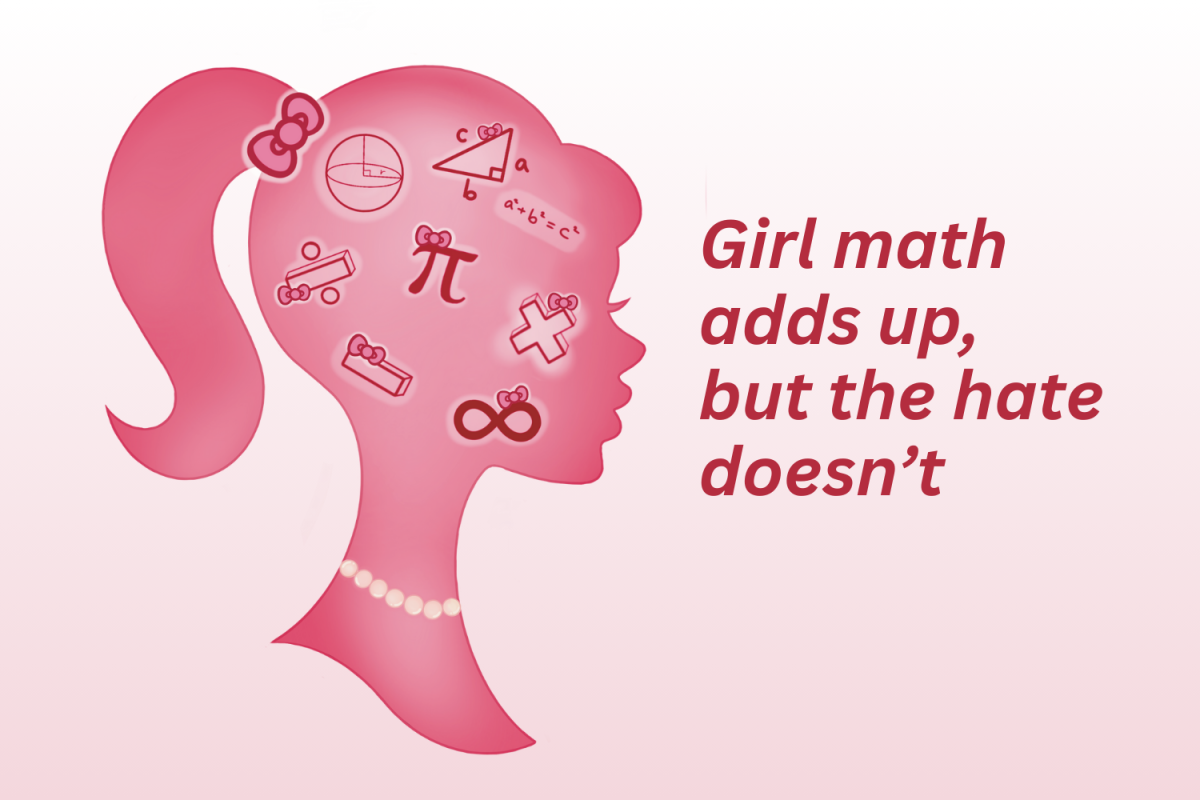Girl math and girl dinner are the most recent additions to the “season of girlhood” on social media. Spiking in popularity with the release of the “Barbie” movie in the summer of 2023, these concepts that girls often use to rationalize their decisions have brought increased attention to women and everything they do. Unfortunately, like many fads on the internet, the trend lost its original meaning when it was blown out of proportion by groups who misunderstood the joke.
The type of feminine logic emphasized through girl math and girl dinner has always been a part of women’s daily lives. Planning out hair wash days based on upcoming events or justifying spending money on a new coat because they will wear it often are common manifestations of girl math. Girl dinner is an adjacent trend that validated women for eating an assortment of snacks in place of a traditional meal when they were too tired to cook. With this trend, a safe space was created for women to validate each other while making such decisions.
Though the trends were rooted in intentions of inclusivity and humor, they quickly reached ignorant audiences who began unhealthily applying these mindsets and negatively portraying the concepts. Girls would spend irrationally, using girl math as their justification, or refuse to eat their meals in the name of girl dinner. New additions to the girl math and girl community were often only exposed to the misinterpreted version of the trend, and this sparked a wave of distaste for the trend because the new audience saw it as condoning irresponsible behavior.
Before long, the criticism of the trend turned into criticism of women in general, and the trend was thought to evince women’s lack of common knowledge. Girl dinner videos were met with disapproval about how women should revert to the standards of domesticity and spend more time cooking because they were incapable of handling money and had forgotten how to prepare meals.
“Girl math and girl dinner are just fun methods of working through and breaking down circumstances that are mainly faced by women,” senior Gauri Jain said. “People who don’t feel the need to logically sort out their shopping budgets or hair wash days won’t understand the utility of these types of feminine logic.”
Much of the criticism against girl math and girl dinner comes from men who are not familiar with these issues. In retaliation against their hate, women came up with boy math, a take on girl math that called out men for their often illogical habits, ranging from dating women half their age to lying about their height. The divide between the two groups escalated, bringing further attention to gender stereotypes, such as men having fragile egos or women being too sensitive.
“While the trend of boy math perpetuates stereotypes, most of its claims are true and men’s response to the trend only normalizes and encourages such behavior,” junior Hao Gu said.
Just like many other trends on social media, girl math and girl dinner’s intentions evolved into a negative influence when it was taken out of context. Confirming the validity and genuine intention of creators’ posts will prevent trends from spiraling out of control. Understanding that generalizations don’t reflect an entire population will encourage users to take social media lightly.
“These logics have proved useful time and time again for most women, and we shouldn’t discredit girl math or girl dinner because some people misinterpreted the terms,” Jain said.









































































